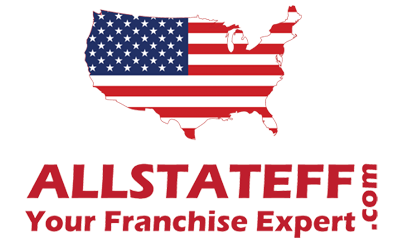Talk on the Street
Talk on the Street
Press Releases & News Articles
Small Business & Franchising with All State Franchise Finders
Small business and franchising holds a pivotal role in the economy, as franchise expert Derek Cafferata shares.
The landscape of small business and franchising in the United States is a vibrant and integral component of the nation’s economy. Small businesses, which form the backbone of the American economy, and franchises, which offer a structured approach to entrepreneurship, both contribute significantly to economic growth, job creation, and innovation.
The Role of Small Businesses
Small businesses are pivotal in driving economic vitality in the United States. According to the U.S. Small Business Administration (SBA), there are approximately 33.2 million small businesses in the country, accounting for 99.9% of all U.S. businesses. These enterprises generate nearly half of the private-sector GDP and employ roughly half of the U.S. workforce.
Small businesses offer a wide range of products and services, from retail stores and restaurants to tech startups and professional services. They are known for their agility, allowing them to adapt quickly to market changes and customer demands. Additionally, small businesses foster innovation by providing a platform for new ideas and entrepreneurial spirit.
Challenges Faced by Small Businesses
Despite their contributions, small businesses often encounter significant challenges. Access to capital remains a major hurdle, with many small business owners relying on personal savings or high-interest loans to fund their operations. Regulatory compliance, including zoning laws, tax regulations, and labor laws, can also be complex and burdensome.
Moreover, small businesses must navigate the competitive landscape against larger corporations with greater resources. Marketing and customer acquisition are ongoing challenges, particularly for new entrants who must build brand recognition and customer loyalty from the ground up.
Here’s where a franchise expert can make all the difference. “Engaging the advice of a franchise expert can take the stress out of the process of franchise selection, financing, and set up,” says Derek Cafferata, President and Chief Executive Officer of franchise experts All State Franchise Finders.
The Franchise Model
Franchising offers an alternative pathway for entrepreneurs seeking to start a business. A franchise provides a proven business model, brand recognition, and support systems, which can significantly reduce the risk of failure compared to starting a business from scratch. In the U.S., the franchising sector is substantial, with over 750,000 franchise establishments generating more than $800 billion in annual revenue.
Benefits of Franchising
1. Established Brand: Franchises benefit from established brand recognition, which can attract customers and provide a competitive edge.
2. Operational Support: Franchisors offer extensive training, marketing support, and operational guidance, which can help franchisees navigate the complexities of running a business.
3. Economies of Scale: Franchisees often gain access to bulk purchasing discounts and other economies of scale that can reduce costs and improve profitability.
4. Reduced Risk: The franchise model generally comes with a lower risk compared to starting a new business, due to the proven success of the franchise concept and the support provided.
Challenges in Franchising
However, franchising is not without its challenges. Franchisees must adhere to the franchisor’s guidelines and operational procedures, which can limit their autonomy. Additionally, franchise agreements often require significant upfront investment and ongoing royalty payments, which can strain financial resources.
Another potential issue is the franchisee’s dependence on the franchisor’s brand reputation and business practices. Any negative developments or controversies affecting the franchisor can impact all franchisees.
Current Trends and Future Outlook
The small business and franchising sectors are evolving in response to changing market conditions and consumer preferences. Technology is playing a crucial role, with digital marketing, e-commerce, and data analytics becoming integral to business strategies. Many small businesses and franchises are leveraging these tools to enhance customer engagement and streamline operations.
Sustainability is another growing trend, with consumers increasingly favoring businesses that prioritize environmental and social responsibility. Small businesses and franchises are adapting by adopting sustainable practices and focusing on community engagement.
Looking ahead, the future of small businesses and franchising in the U.S. appears promising, despite the challenges. Innovations in technology, shifts in consumer behavior, and evolving market dynamics will continue to shape these sectors. Entrepreneurs and franchisees who can adapt to these changes and leverage emerging opportunities will be well-positioned for success.
ALLSTATEFF.COM Your Franchise Experts
Small businesses and franchises are both essential to the U.S. economy, each offering unique opportunities and facing distinct challenges. While small businesses drive innovation and local economic growth, franchising provides a structured pathway to entrepreneurship with established support systems. As both sectors continue to evolve, they will remain crucial in shaping the future of American business.
Derek Cafferata and his team are here to help potential franchisees with the daunting process of franchise selection, sign-up, and set-up. All State Franchise Finders are award-winning experts who are ready to offer all the advice needed. Contact the team on 1-800-544-2161 or visit allstateff.com today.









